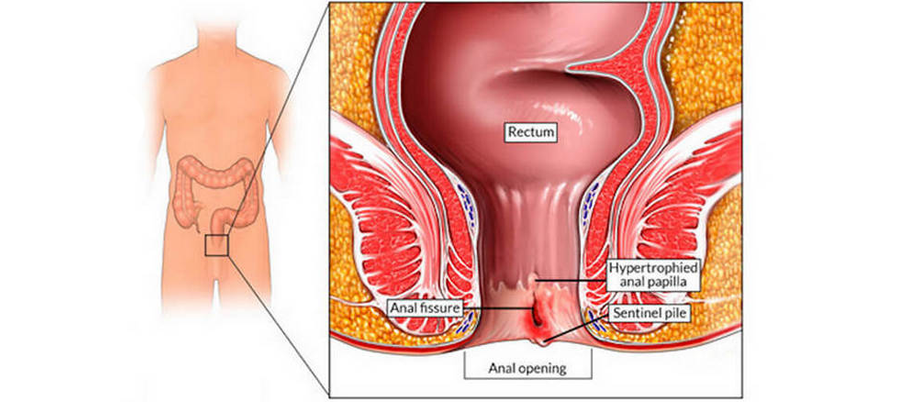An anal fissure is a small tear or cut in the lining of the anus, which can cause pain and bleeding during bowel movements. This condition is common and can affect people of all ages. Here's an in-depth look at anal fissures:
Causes and Risk Factors
- Hard or Large Stools: Passing large or hard stools can cause a tear.
- Chronic Constipation: Frequent straining during bowel movements.
- Chronic Diarrhea: Frequent loose stools can irritate and tear the anal lining.
- Inflammatory Bowel Diseases: Conditions like Crohn’s disease can increase the risk.
- Childbirth: Anal fissures are common in women after giving birth.
- Anal Intercourse: Can cause trauma to the anal lining.
- Other Causes: Less commonly, conditions like anal cancer, HIV, tuberculosis, or syphilis.
Symptoms
- Pain: Sharp, severe pain during and after bowel movements.
- Bleeding: Small amounts of bright red blood on toilet paper or in the stool.
- Itching and Irritation: Around the anus.
- Visible Crack: A visible tear in the skin around the anus.
- Spasms: Muscle spasms in the anal sphincter.
Non-Surgical Treatments
Dietary Changes:
- Increase fiber intake to soften stools.
- Drink plenty of fluids to stay hydrated.
Stool Softeners: Over-the-counter stool softeners can make bowel movements easier.
Topical Treatments:
- Numbing creams or ointments to reduce pain.
- Nitrate ointments or calcium channel blockers to relax the anal sphincter and promote healing.
Warm Sitz Baths: Soaking the anal area in warm water several times a day to increase blood flow and relax the sphincter muscle.
Pain Relievers: Over-the-counter pain relief medications.
Minimally Invasive Procedures
- Botox Injections: Injected into the anal sphincter to relax the muscle and promote healing.
- Nitroglycerin Ointment: Applied to relax the anal sphincter and increase blood flow to the fissure.
Surgical Treatments
- Lateral Internal Sphincterotomy (LIS): The most common surgical procedure for chronic fissures, involving a small cut in the anal sphincter muscle to reduce spasm and pain, promoting healing.
- Anal Advancement Flap: A procedure where a flap of healthy tissue is used to cover the fissure, promoting healing.
